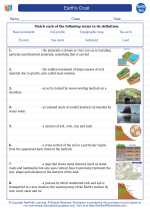Ecology: Understanding the Interactions of Living Organisms
Ecology is the study of the interactions between living organisms and their environment. It focuses on understanding the relationships between different species, as well as their interactions with the non-living components of their environment, such as water, air, and soil. This field of science is crucial for understanding the delicate balance of ecosystems and the impact of human activities on the natural world.
Key Concepts in Ecology
- Ecosystem: An ecosystem is a community of living organisms (biotic factors) interacting with the non-living components (abiotic factors) of their environment.
- Population: A population consists of all the individuals of a particular species within a specific area.
- Community: A community is the collection of populations of different species that live and interact in the same area.
- Food Chain and Food Web: These concepts illustrate the feeding relationships among different organisms in an ecosystem. A food chain shows a linear flow of energy and nutrients from one organism to another, while a food web demonstrates the complex, interconnected feeding relationships in an ecosystem.
- Energy Flow and Nutrient Cycling: Ecosystems require a continuous flow of energy, usually from the sun, and the recycling of nutrients to sustain life.
- Biomes and Habitat: Biomes are large geographic areas with similar climate, flora, and fauna. Habitats refer to the specific environments where particular species live.
- Ecological Succession: This concept describes the process of change in the species structure of an ecological community over time.
- Biodiversity: Biodiversity refers to the variety of life forms present in different ecosystems and the ecological roles they perform.
Studying Ecology
When studying ecology, it's important to understand the various methods and tools used to investigate and analyze ecosystems. Some key study areas include:
- Field Research: Ecologists often conduct field research to observe and measure ecological processes in natural environments.
- Data Analysis: Analyzing ecological data using statistical techniques helps in understanding patterns and relationships within ecosystems.
- Modeling: Ecological models are used to simulate and predict the behavior of ecosystems under different conditions.
- Conservation Biology: This field focuses on preserving biodiversity and restoring degraded ecosystems through scientific research and management strategies.
Ecology in the Real World
Understanding ecology is essential for addressing environmental challenges and developing sustainable practices. It provides insights into the impact of climate change, habitat destruction, pollution, and invasive species on ecosystems, as well as the development of conservation strategies and policies to protect biodiversity.
Ecology also plays a crucial role in shaping land use planning, agriculture, and resource management practices to ensure the long-term health of our planet.
Study Guide
To effectively study ecology, consider the following tips:
- Understand the key concepts of ecology, including ecosystems, populations, communities, and food chains.
- Learn about the different methods used in ecological research, such as field studies, data analysis, and modeling.
- Explore real-world applications of ecology, including conservation biology and environmental management.
- Engage with case studies and examples of ecological principles in action to deepen your understanding of how ecosystems function.
- Consider the ethical and societal implications of ecological issues, such as biodiversity loss and ecosystem degradation.
By mastering the principles of ecology and their real-world applications, you can gain a deeper appreciation for the complexities of natural systems and contribute to efforts aimed at protecting and preserving our planet's ecosystems.
[Ecological] Related Worksheets and Study Guides:
.◂Earth Science Worksheets and Study Guides High School. Earth's Crust
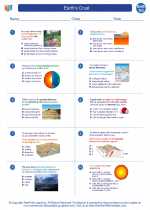
 Worksheet/Answer key
Worksheet/Answer key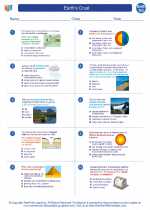
 Worksheet/Answer key
Worksheet/Answer key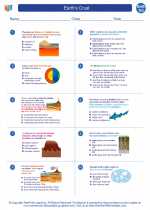
 Vocabulary/Answer key
Vocabulary/Answer key
 Vocabulary/Answer key
Vocabulary/Answer key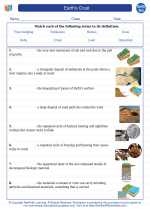
 Vocabulary/Answer key
Vocabulary/Answer key